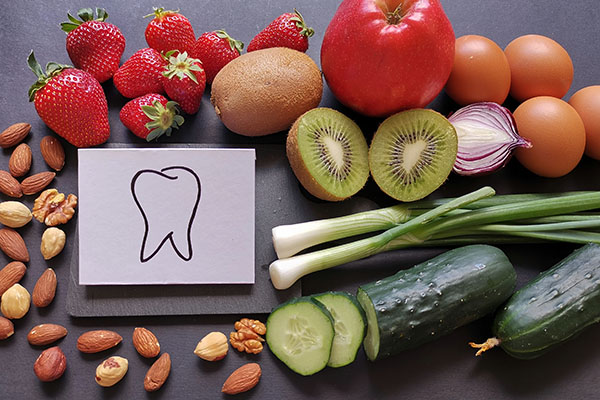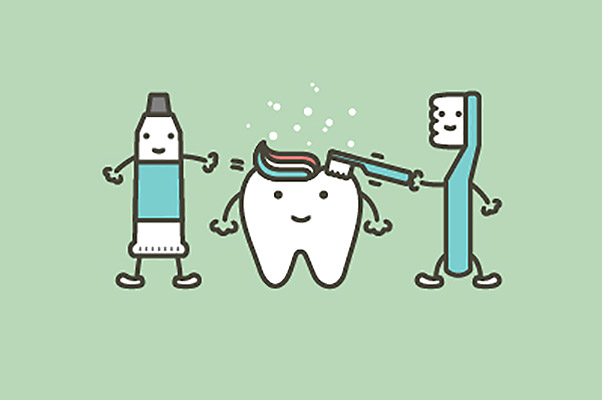 A dental restoration can improve your appearance and dental health. Your dentist can help you prepare for your procedure. The consultation can also tell you how you should care for your new smile. Here are the details if you want to know how to maintain your dental restoration for lasting results.
A dental restoration can improve your appearance and dental health. Your dentist can help you prepare for your procedure. The consultation can also tell you how you should care for your new smile. Here are the details if you want to know how to maintain your dental restoration for lasting results.
Choose the right toothpaste
Some fluoride treatments and toothpaste brands can damage dental restoration. Acid is often present in fluoride products. This component can change the color of any dental restoration. Other toothpaste brands are abrasive to veneers and porcelain crowns. The dentist may recommend a neutral fluoride that will not weaken the bonding in the restorations. The toothpaste must be gentle for every type of dental restoration.
Visit the dentist for regular dental cleanings
Seeing the dentist every six months will ensure that the dental restoration stays in top condition. There are available cleaning tools with polishing paste that can keep a dental restoration in top shape. The dentist will also clean the patient’s natural teeth. A professional dental cleaning can keep the restorations clean without damaging them or causing pain to the patient.
Refrain from biting sharp or hard items
After recovering from getting any dental restoration, the patient can eat almost anything. But biting on hard items, such as fingernails or ice, can become a problem. The patient must stop this habit so that the restorations can stay intact. Some individuals have bruxism. They can wear custom nightguards so that the dental restoration can stay intact. Wearing a mouthguard can protect dental restoration during sports or outdoor activities.
Floss well
Getting a dental restoration will need regular cleaning. This is necessary so that the restoration and the natural teeth can stay in good shape. Brushing at least two times a day with a soft-bristled toothbrush can keep food particles and plaque away. But this is not enough. Flossing below the treated teeth can keep them free from decay infection.
Keep alcohol and tobacco consumption off the list
The teeth and gums need continuous care even after the dental restoration procedure. Eating nutritious foods and drinking more water can give the treated teeth what is necessary to recover. Studies show that alcohol and tobacco impair blood circulation and oxygenation. That is why one must quit these habits.
A dental restoration will be prone to discoloration if exposed to tobacco and alcohol. The bonding strength will also weaken. Alcohol, in particular, can weaken the attachment of a dental restoration to the tooth. Some mouthwashes have alcohol that can cause the early deterioration of restorations.
Brush the right way
Brush for two minutes each time with a soft-bristled toothbrush. Brushing with the right technique is important as well. Make sure that the toothbrush is at a 45-degree angle to the gums. Short front and back strokes across the teeth are enough to scrub the teeth and keep plaque away.
Your dental restoration can last for a lifetime with some guidance from your dentist
Having a dental restoration means having the dedication to care for your new smile. This needs changes in your lifestyle, diet, and even habits. Knowing how to maintain your restoration may be difficult at first, but these practices will later on become part of your daily habit. Working with your dentist can help make your restorations last for a long time.
Request an appointment or call King Dentistry at 209-585-1474 for an appointment in our Turlock office.
Recent Posts
Any dental restoration can be challenging to budget for. Discussing the particulars with your dentist can help you get a clear idea of the final amount. Understanding the specific elements of your dental procedure is important in setting your budget. Here is a comprehensive guide for determining the cost of your dental restoration.This dental restoration…
Dental restoration is a term used to describe the process of repairing or replacing damaged, decayed, or missing teeth. Several dental restoration options are available to patients, ranging from simple fillings to more complex procedures such as dental implants and crowns. This article will explore some of the most common dental restoration options available and…
Cracked and chipped teeth can be unsightly and painful, but dental restoration can help. Even a painless chip or crack may become a bigger problem if left untreated. Severe pain, swollen and tender gums, and infection may result. In the worst cases, it will be necessary to extract the broken tooth. There are many ways…


